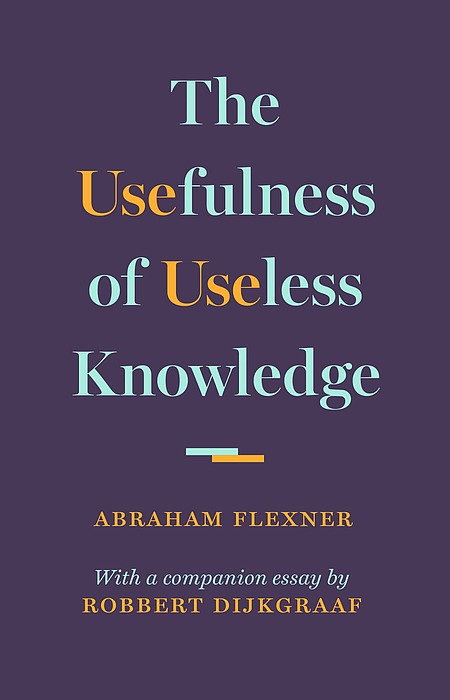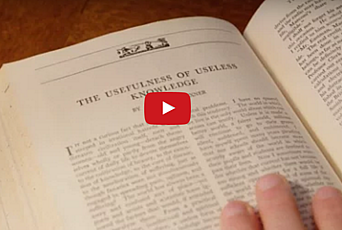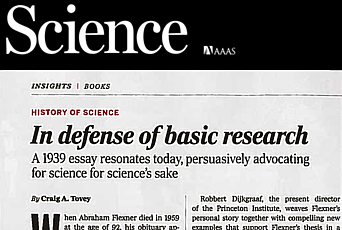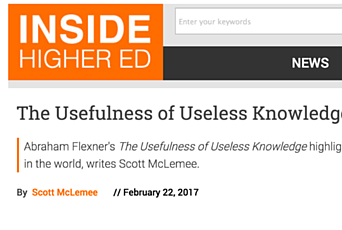“The Usefulness of Useless Knowledge” by Institute Founding Director Abraham Flexner Published by Princeton University Press
Press Contact

“Flexner and Dijkgraaf argue that basic research—driven by curiosity, freedom and imagination—is a proven and essential seed for the revolutionary technologies that fuel the economy, transform society, and provide solutions for the world’s problems. A thoughtful appeal for long-term thinking in a time full of short-term distractions.” — Eric Schmidt, Executive Chairman of Alphabet Inc.
A new book by Princeton University Press, The Usefulness of Useless Knowledge, features Institute for Advanced Study founding Director Abraham Flexner’s classic essay of the same title, first published in Harper’s magazine in 1939, and includes a new companion essay by Robbert Dijkgraaf, Director and Leon Levy Professor at the Institute. In his 1939 essay, Flexner (1866–1959) articulates his belief that the greatest scientific discoveries and technological breakthroughs arise from the work of scholars motivated solely by curiosity and the search for answers to deep questions, without concern for applications. Dijkgraaf advances Flexner’s message, which has informed the mission of the Institute for nearly ninety years, and shows how essential basic research and original thinking are to innovation and societal progress.
A forty-year tightening of funding for scientific research has meant that resources are increasingly directed toward applied or practical outcomes, with the intent of creating products of immediate value. Dijkgraaf challenges this approach and argues that society can achieve deeper understanding and practical progress today and tomorrow only by truly valuing and substantially funding basic, curiosity-driven research in both the sciences and humanities.
“The progress of our modern age, and of the world of tomorrow, depends not only on technical expertise, but also on unobstructed curiosity and the benefits of traveling far upstream, against the current of practical considerations,” said Dijkgraaf. “The sensible approach to research is to create a portfolio with projects of immediate concern that have concrete applications, and also long-term projects that require deep thinking.”
History offers countless examples of the successes achieved by the pursuit of so-called useless knowledge. Quantum mechanics inadvertently led to the development of computer chips, and today’s GPS devices would be unthinkable without Einstein’s theory of relativity.
This spring, Dijkgraaf will advocate for the importance of basic research and the pursuit of curiosity-driven knowledge at multiple venues and public events across the country and in the United Kingdom. Events include public talks at the Princeton Public Library on March 14, the New York Public Library on March 20, the Harvard Bookstore on March 27, Chicago on April 6, The Bell House in Brooklyn on April 17, Palo Alto on May 11, the London Review Bookshop on May 25, and the Hay Literary Festival in Wales on May 27. To learn more about the Usefulness of Useless Knowledge and related events, visit www.ias.edu/usefulness-useless-knowledge.


